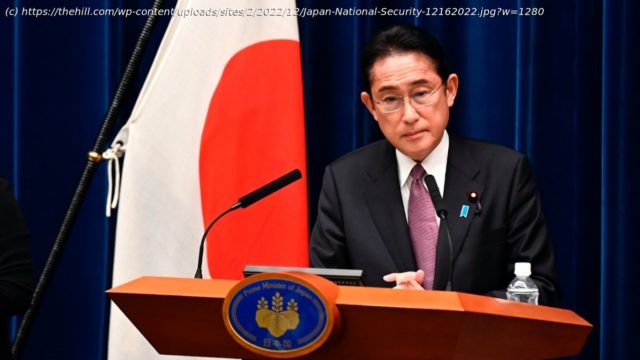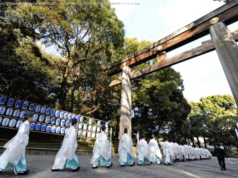Array
Here comes Japan. The country is reasserting itself as a major military power by moving to double its defense budget in five years and break the 1 percent barrier. That’s the level under which Japan has long held military spending, to 1 percent of its gross national product, the world’s third largest after the U.S. and China.
The budget increase may not technically represent a shift in constraints imposed by Japan’s “no war” constitution, but it edges close by authorizing “defensive” missile strikes. The obvious targets would be China and North Korea, seen as existential threats.
Scores of North Korean missile tests this year, and China’s reluctance to rein in its North Korean protectorate, are reasons for the abrupt shift in policy on defense spending. The great leap upward also reflects rising concerns in the aftermath of Russia’s invasion of Ukraine and China’s shrill vows to recover the island province of Taiwan, not to mention uncertainty about Washington’s long-term commitment.
The thinking among Japan’s deeply conservative leadership is that it’s time to break out of decades of pacifism since the disaster of World War II. The transition has been creeping up with the rising GNP, now above $5 trillion a year. That’s well behind China’s GNP of $15 trillion and the U.S. GNP of more than $22 trillion this year, but Japan’s relatively small Self-Defense Forces (SDF) of 250,00 troops in all services now rank among the world’s strongest.
Prime Minister Fumio Kishida, announcing the breakthrough, called the $320 billion, five-year plan Japan’s answer to the country’s “security challenges.” A retired admiral predicted the euphemistically named “Ground, Air and Maritime Self-Defense Forces” would become “world-class.” Given the skills of Japanese manufacturers, engineers and technicians and the dedication of its members, the SDF undoubtedly fits that description already.
Now, however, the SDF is planning to grow exponentially. American defense contractors would get a chunk of the investment. The Japanese have decided to import several hundred Tomahawk missiles from Raytheon at a cost of $1.2 million apiece. A Tomahawk has a range of 1,000 miles, enough to hit targets anywhere in North Korea and much of northeastern China.
Japan also is acquiring 147 F35 fighters at $100 million a plane, probably the biggest-ticket item.






